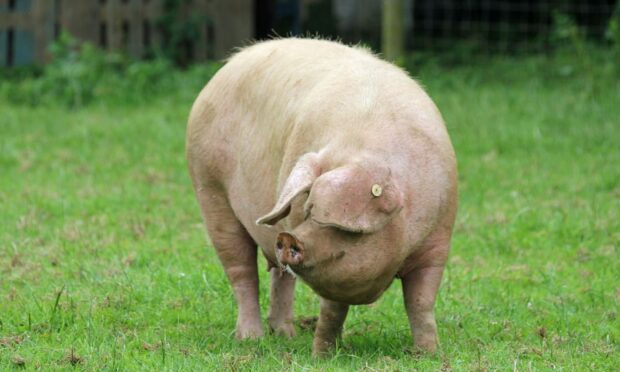A major scientific study into one of Britain’s rarest breeds of pigs could provide a template for saving other vulnerable livestock breeds.
The Rare Breeds Survival Trust (RBST) says a genomic study of the Lop, a white pig with distinctive ears that touch the end of its nose, could pave the way for action to save the breed that has a breeding population of only 40-45 animals as well as other breeds on the verge of extinction.
RBST chief executive Christopher Price said: “This first ever identification of the genetic markers of the Lop breed not only provides the basis for best animal selection for breeding programmes and for storing genetic material, but it also enables us to form tailored programmes to increase genetic diversity within the breed.
“This is a really important study for the work to ensure our other rare native breeds survive too, it is the first of its kind for any pig breed native to the UK, and we hope it will set a template for how other rare breeds could access similar genetic data.”
The study, which revealed some genetic diversity within the breed but also a high level of genomic inbreeding, involved collecting hair samples from 190 individual pigs raised on 40 farms which were analysed by scientists at Scotland’s Rural College (SRUC).
According to the RBST, the Lop, which originates in the West Country, produces high quality pork and bacon that is highly prized by butchers and chefs.
The chairman of the British Lop Pig Society, Giles Eustice, farms at Trevaskis Farm in Cornwall.
He said: “The new genomic data is a fantastic boost for the breed as it proves we still have the diversity required to bounce back even stronger, although it is fair to say things are on the edge! We have a committed following of old and new breeders and I am confident with the new tools we have been given we can achieve the diversity goal required.
“I am interested in using the sequencing to explore some of the ‘Celtic’ white pigs in existence with much similarity to the British Lop; they could hold a diversity key that may be needed.’’
Professor Georgios Banos at SRUC said: “This work demonstrates the genetic uniqueness of the British Lop pig. We used modern technologies and data to derive information that may be used as a practical breed purity test and also inform breeding strategies aiming to safeguard the integrity of the breed.”

